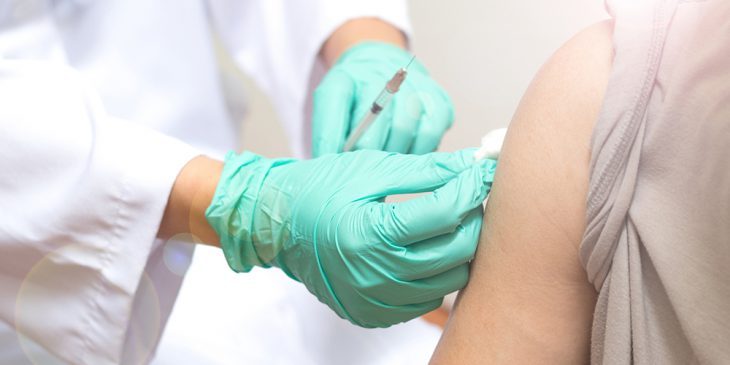Today, the U.S. Food and Drug Administration issued emergency use authorization for Johnson & Johnson’s COVID-19 vaccine. The single-dose immunization is the third COVID-19 vaccine approved for use in the United States.
All three vaccines approach 100% effectiveness at preventing serious complications like hospitalization, the need for mechanical ventilation and death.

Dr. Graham Snyder
“If you have the chance to get a vaccine, get it, regardless of the manufacturer,” said Dr. Graham Snyder, UPMC’s medical director of infection prevention and hospital epidemiology. “They all offer significant health advantages for you and the community, and they play an important role in saving lives and minimizing the impact of this virus.”
Trial data has shown the Johnson & Johnson vaccine is 66% effective at preventing symptomatic COVID-19 illness. While this number is lower than its Pfizer and Moderna counterparts, Snyder emphasized that all three vaccines provide protection that is critical to waning the pandemic. He urged people not to seek out one type of vaccine over another or pass on immunization with the Johnson & Johnson vaccine to wait for Moderna or Pfizer.
There is currently no evidence that any of the vaccines are preferred to protect specific vulnerable patient populations, like the elderly and those with compromised immune systems. While initial data is promising, more information is also required to know how well the three vaccines reduce transmission of the virus by making infected individuals less contagious.
Johnson & Johnson’s vaccine uses a small piece of the virus’s genetic material, which stimulates the immune system to recognize the virus. It can be stored in a regular refrigerator, eliminating the cold storage requirements of the Pfizer and Moderna vaccines. Currently, the vaccine only requires a single dose, rather than the two-dose regimen of the other vaccines. Anticipated side effects include soreness at the injection site, achiness, fatigue and fever.
According to Snyder, having multiple types of COVID-19 vaccines is advantageous. Doses will be available faster, and the differing storage requirements will allow distributors to reach more locations across the country. Additionally, if allergies prohibit a person from receiving one type of vaccine, they may be eligible for another.
“Vaccines, together with emerging treatment options like monoclonal antibodies, are important components in decreasing the scope of the pandemic,” said Snyder. “Even as vaccines become more widely available, we must also do our part to maintain effective infection prevention measures, including masking, hand washing and social distancing, to curb the spread of COVID-19.”








